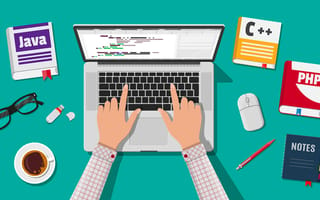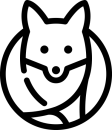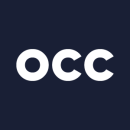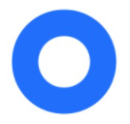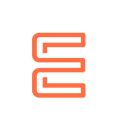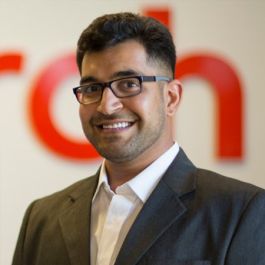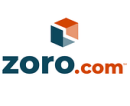For Back-End Engineer Alyssa Cox, the greatest part about working at Foxtrot isn’t simply having the chance to develop exciting new features — it also comes down to the welcoming, understanding nature of her peers.
As someone who faces mental health challenges, Cox understands the importance of connection and a healthy work-life balance. She said the company prioritizes these crucial facets, encouraging its employees to take time off and socialize during team outings.
Yet Foxtrot isn’t the only local company that focuses on both fun and functionality. When Engineering Manager Shaneel Sharan and his teammates at Lever aren’t working on expanding their platform’s data privacy features, they’re playing games or participating in a book club discussion.
“Despite having team members spread across different time zones, I feel strongly connected with my peers,” Sharan said.
Engineering Manager Naila Zaman also feels a sense of fellowship with her teammates at SpotOn, with whom she is currently attempting to scale the company’s system while maintaining its robustness. According to her, the company empowers its people to make an impact, encouraging them to offer meaningful suggestions and support each other.
“I feel fortunate to be a part of SpotOn’s engineering team,” Zaman said.
For these engineering professionals, technical progress goes hand in hand with team interconnectedness. Built In Chicago caught up with Cox, Sharan, Zaman and four other local experts to learn about their teams’ tech stacks, current projects and connective cultures.

Foxtrot’s marketplaces are designed to merge neighborhood retail and e-commerce technology, offering a selection of local goods and everyday essentials. The company’s app enables consumers to easily schedule pick-up and delivery orders.
What are some of your favorite tools in your tech stack?
On the back-end team, we use Django and Laravel frameworks to develop our system. Python wasn’t the first programming language I learned, but it’s the first one I knew in and out, and I prefer to use it regularly. I’m a huge fan of Django, having also used it at my previous job, where I was known as the ‘Django Whisperer.’ I love Django’s ORM and using it in conjunction with the Django Rest Framework, which makes writing API endpoints simple.
I’ve also recently rewritten most of our logging setup, and I’ve enjoyed employing the Structlog library to send formatted logs from Django to Datadog. With the new logging structure, Datadog is even easier to use, and I’m able to diagnose issues quickly and effectively.
What interesting or challenging project are you currently working on, and what do you enjoy most about it?
The larger engineering team at Foxtrot is currently overhauling and rewriting our rewards program, which we call ‘perks.’ It’s been tricky, because so much depends on this system, and it’s connected to almost every function in our application. I enjoy working on problems that encompass our entire system, as I learn so much more about how everything works. This project offers me a lot of insight into some of our more complicated workflows. I’m excited to get this new feature out to customers, as it will be an exciting and fun change.
The back-end team is also focused on scaling up our application. With the rapidly increasing number of stores and influx of new customers, we have to ensure our infrastructure can handle growing demand. I’m excited about growing, as that means more people can experience Foxtrot once we roll it out to new locations.
Foxtrot’s engineering team fosters a healthy work-life balance, and everyone is very social.”
What’s something unique about your team that separates it from other engineering orgs?
Foxtrot’s engineering team fosters a healthy work-life balance, and everyone is very social. I have worked on other teams where everyone either ate at their desk and worked through lunch or went to lunch individually. Whenever I’m in the office, there’s always a huge group of people getting lunch together, which I really enjoy. We also have a lot of team outings, such as park hangouts and Cubs games.
I’ve had other work experiences that were very stressful and demanded a lot of overtime, which led to a really unhealthy work-life balance and severe burnout. Yet this company focuses heavily on time off, offering early-release summer Fridays and unlimited PTO.
There is also an emphasis on mental health. I struggle with depression, anxiety and OCD, and my team has been incredibly understanding and supportive. They even once sent me flowers when I was really sick. It was a great surprise and made me so appreciative of my team.

OCC clears and settles trades for the options industry.
What are some of your favorite tools in your tech stack?
OCC’s Renaissance initiative is based on real-time data streaming and processing architecture. It’s highly modular and services-based, enabling high degrees of flexibility and resiliency. Our tech stack leverages asynchronous parallel processing paradigms and cloud-based technologies, offering great degrees of on-demand horizontal scalability.
What interesting or challenging project are you currently working on, and what do you enjoy most about it?
Currently, our most sophisticated and challenging issue is ensuring fast and accurate predictions of financial market deviations. We are currently in the final stages of development and delivery of a ‘What-If Margin’ product, which should enable us to calculate financial metrics and expectations on demand. This will help strengthen our clients’ competitive advantage in the fast-moving world of options clearing.
Our product’s success depends upon hard work and team effort. By working together, our teammates supply building blocks such as regression algorithms, development and production environments and APIs and tools. They design and implement data pipelines, run quality assurance tests, and communicate with clients. Nothing can be completed without effective cross-departmental cooperation. We spent months optimizing our solution and verifying the results. We ensure our products address specific business challenges.
This year, our project will enter the pre-production stage. Considering engineers appreciate seeing their creations reach fruition, we are excited to see years of collective investments finally pay off.
Our team is highly multicultural, which is our biggest asset.”
What’s something unique about your team that separates it from other engineering orgs?
Our teammates are distributed across the country, yet we act as a single unit that communicates and delivers qualified results on time. Our secret is leveraging the right combination of tools and methodologies that help us remain effective in the virtual workspace. This flexible approach allows us to bring in talent from many places. Few enterprises of our size have had the same success. We turn remote collaboration from a challenge into a game-changer. Also, our team is highly multicultural, which is our biggest asset. Each team member brings both top professional skills and a unique vision. Understanding and respecting our differences helps us adjust our development process and prepare for the future.

SpotOn builds payment processing software and marketing tools for small businesses.
What are some of your favorite tools in your tech stack?
We use Golang and MongoDB on our back end and Javascript and React on our front end. Additionally, we use GitHub and GitHub Actions to ensure all the code we push out is held to a high standard while reducing the amount of manual work.
What interesting or challenging project are you currently working on, and what do you enjoy most about it?
Like many projects, our restaurant POS software is currently a large, wide-ranging platform. Because of this, we are tied to a lot of dependencies in our release process. We have a talented team of engineers working to continue splitting out our front-end code into separate repositories from our back-end code, and increasing our automated test coverage on the resulting front-end repository. It’s exciting to see this project progress, as it will help us scale our system while keeping it robust.
I enjoy working at a company that offers the opportunity to make an impact both internally and externally.”
What’s something unique about your team that separates it from other engineering orgs?
I enjoy working at a company that offers the opportunity to make an impact both internally and externally. Engineers are empowered to make meaningful suggestions and have the chance to see end results quickly. While working with restaurant POS software has its own challenges, my teammates are friendly and willing to help each other at a moment’s notice, all while working remotely.

Lever offers a combined ATS and CRM solution, which is designed to help companies enhance their recruitment process.
What are some of your favorite tools in your tech stack?
My favorite tools include TypeScript/CoffeeScript and Kafka. Lever’s engineering team is composed of ‘working groups,’ which are self-formed units that focus on specific engineering topics. Soon after joining the company, I became a member of our TypeScript working group to help migrate our legacy CoffeeScript code to TypeScript and educate other engineers. I had the opportunity to pair up with developers across the organization and help them migrate their first file into TypeScript. This was a rewarding experience and allowed me to make an impact early on.
I recently joined our event-driven working group, which focuses on event-driven architecture and building more scalable systems. I haven’t had much experience with event-based systems such as Kafka, so being in that group has enabled me to expand my knowledge and learn from others with more experience.
What interesting or challenging project are you currently working on, and what do you enjoy most about it?
Our team is currently working on expanding the data privacy features in Lever. We support GDPR, an EU-based data privacy law, and are working on adding support for other data privacy laws as well. It’s been a challenging yet fun process. We’re learning more about the compliance codebase in our software and figuring out how to update our back-end data model to support all the features we have planned on our roadmap. One of my favorite things is that every engineer has the opportunity to be a part of the planning process. This allows us to align on project goals more quickly and enables every engineer to make an impact early on in the process.
I enjoy tackling interesting problems alongside such driven, dedicated people.”
What’s something unique about your team that separates it from other engineering orgs?
I met my teammates for the first time in person at a company offsite after months of working remotely. Yet we didn’t feel like strangers, as I already knew them all so well. I enjoy tackling interesting problems alongside such driven, dedicated people. Our team makes an intentional effort to collaborate whenever possible. For example, we get paired with other engineers to collaborate on problems, get to know each other better and work with people we typically don’t work with.
Our team also has recurring social hours, during which time we play games or host a book club discussion. When it was my turn to host the book club, I picked a video game-related article about the development of Anthem. It was fun to learn which engineers were gamers, which enabled us to discuss the topic more deeply after the session.
Maven Wave is a digital transformation consultancy offering various services, from mobile app development to DevOps.
What are some of your favorite tools in your tech stack?
I really enjoy developing frontend applications, as it enables me to build and design solutions that people interact with every day. I’m an advocate for Angular, considering it provides guardrails for engineers to stay on a common path and offers recommended tools and patterns. I have also started using NestJS in my backend architectures more often. It offers engineers a common framework to go from front-end to back-end development.
What interesting or challenging project are you currently working on, and what do you enjoy most about it?
Previously, I helped develop a solution to provide medical-grade tablets and an educational entertainment platform for a healthcare service provider and its clients. This engagement crossed many technical and business boundaries. To tackle this, we leveraged Chrome OS, Angular, NestJS, Kubernetes/Helm, SocketIO, Google Cloud SQL, and Google Cloud Identity. The best part of this engagement was having the opportunity to help individuals mitigate their healthcare struggles and add enjoyment to an often difficult experience.
Weekly tech talks give engineers space to offer deep technical expertise.”
What’s something unique about your team that separates it from other engineering orgs?
My team takes part in weekly tech talks, during which time we discuss technologies that relate to certain projects. These discussions give engineers space to offer deep technical expertise. Our latest talk was about Apache Flink, a stream-processing and batch-processing framework. This technology allows for parallel processing of data streams and integrated fault tolerance.
Alliant Credit Union is a digital financial institution offering a broad range of banking, borrowing and investment services.
What are some of your favorite tools in your tech stack?
We’ve accomplished many complex tasks by combining our automation scheduler and MFT software, from database dips and file transfers to decryption and encryption. We also added Visio and Notepad++ to the stack with some add-ons to create an automation workbench.
What interesting or challenging project are you currently working on, and what do you enjoy most about it?
Following the recent and successful failover of our core processing software and online banking system, we’re continuing to enhance the failover process and prepare for a new payment-solution vendor onboarding. In addition, we’re working on onboarding several other fintech solutions, which is an exciting challenge given the high variability in partner integrations and tight timelines. Teams from different areas collaborate, test and implement successful code migrations that impact Alliant members positively.
My team’s day-to-day work encompasses our most interesting and exciting challenges.”
What’s something unique about your team that separates it from other engineering orgs?
My team’s day-to-day work encompasses our most interesting and exciting challenges. We’re responsible for ensuring all of our applications run correctly, supporting over $15 billion in assets. We need to keep production running through many processes we run, which consists of about 100K automation tasks every month. If something breaks, not only do we fix it, but we also develop new automation and enhance the process to prevent future issues. When issues or enhancement opportunities arise, everyone jumps in to help develop a solution. It requires cross-functional effort, as everyone is accountable for providing our members with the best digital banking experience possible.
Zoro sells supplies, equipment and tools to organizations across a wide range of industries.
What are some of your favorite tools in your tech stack?
Our tech stack consists of the following: Elastic Search, Kubernetes, DataFlow, Apache Beam, PubSub, MongoDB, BigQuery, Vue / Django, Python, Docker, and Cloud Scheduler.
What interesting or challenging project are you currently working on, and what do you enjoy most about it?
The search team is working on building our own search engine with the aim of getting customers where they need to be with minimal effort and no dead ends. I enjoy every part of this project, especially relevance engineering, as it gives me the opportunity to learn and practice the science of search engine technology.
Our team is unique due to its culture and emphasis on learning more about the latest technologies.”
What’s something unique about your team that separates it from other engineering orgs?
Our team is unique due to its culture and emphasis on learning more about the latest technologies.

